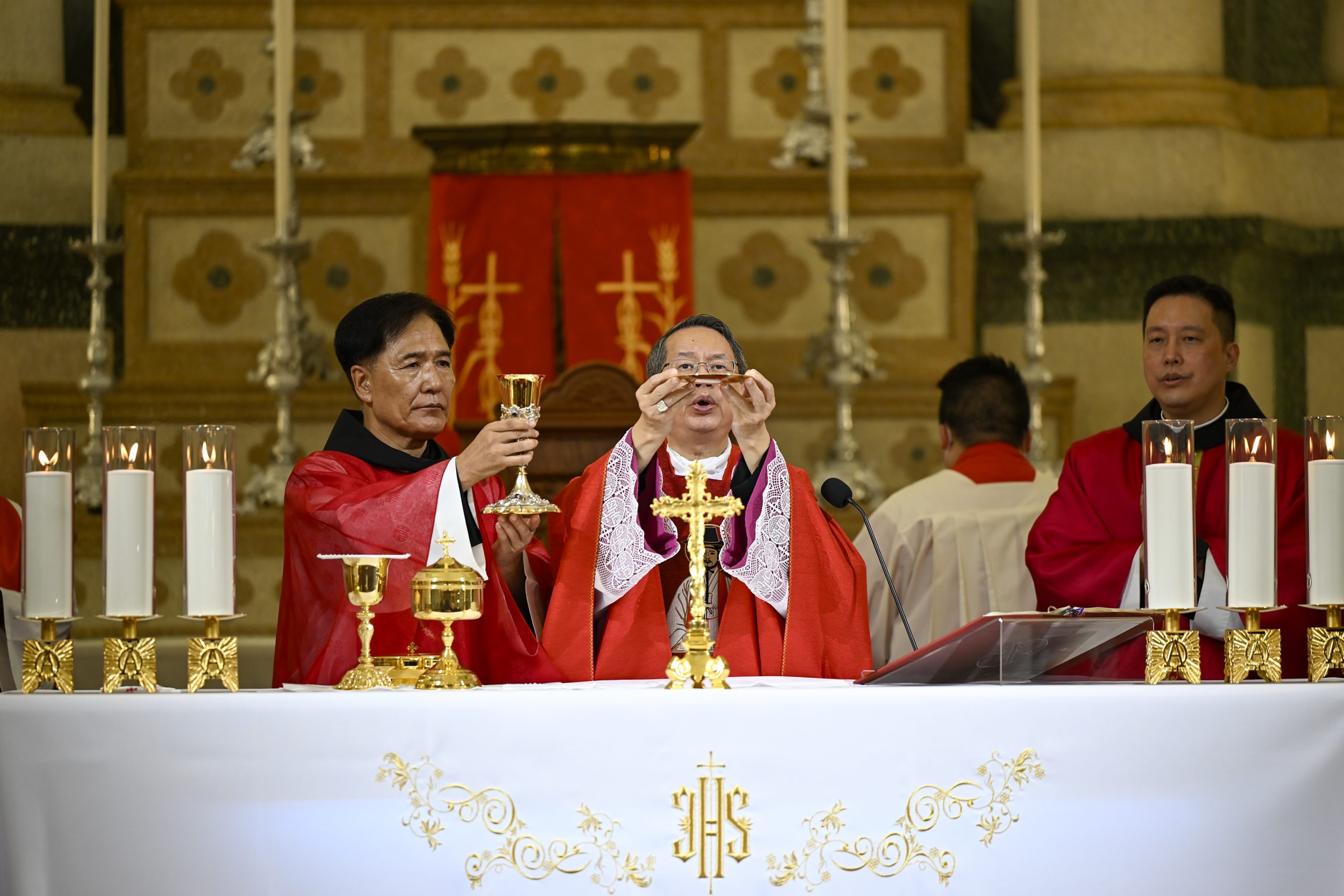The Eucharist and the Value of Work
Fr Paolo Consonni, MCCJ
Corpus Christi Year B
“While they were eating, Jesus took a loaf of bread […] and said, ‘Take; this is my body.’ Then he took a cup, […] and he said to them, ‘This is my blood of the covenant, which is poured out for many’.” (Mk 14:22-24)
“At the heart of the Eucharistic celebration are the bread and wine that, by the words of Christ and the invocation of the Holy Spirit, become Christ’s Body and Blood.” (CCC 1333).
Even today, bread is the staple food for many people in the Mediterranean world. Bread is usually broken during eating, hence symbolizing sharing. Wine, on the other hand, evokes joy and celebration, a symbol of the abundance of God’s blessing.
In each Eucharist, during the offertory, the priest first offers the bread saying: “Blessed are you, Lord God of all creation, for through your goodness we have received the bread we offer you: fruit of the earth and work of human hands, it will become for us the bread of life.” The priest repeats the blessing with the wine, “fruit of the vine and work of human hands”. Those words, often unheard because of the singing, are important because they connect the Eucharist with an essential aspect of our life: our daily work.
Bread and wine, made from wheat and grapes, are first of all a gift of the creator. However, to become edible and drinkable, they must undergo a laborious process: the sowing and reaping, crushing, and pressing, cooking, and fermenting; namely, they must undergo “the work of human hands”. The fruit of this work can then become the Body and Blood of Christ, the Sacrament of His presence among us.
To work is our common human vocation which stems from the fact of our being created in the image of the Creator God, a “working” God who continuously fills creation with His goodness. The DOCAT interestingly underlines that human work is more than a mere duty: “through work, human beings have the privilege of contributing something to the positive development of the world. Thus, man in a certain way participates in God’s work of creation.” (136) To work is a privilege, not a curse! The blessing of the bread and wine during the offertory clearly emphasizes the preciousness of this privilege.
The Eucharist also imbues human work with redemptive meaning: “By enduring the hardship of work in union with Jesus, the carpenter of Nazareth and the one crucified on Calvary, man collaborates in a certain fashion with the Son of God in his redemptive work. He shows himself to be a disciple of Christ by carrying the cross daily in the work he is called to accomplish. Work can be a means of sanctification and a way of animating earthly realities with the Spirit of Christ.” (CCC 2427). Together with the bread and wine we also offer our working life with all its fatigue, so that it may become a gift of love for the salvation of humanity. In this way, the Eucharist shows that doing simple tasks, no matter how humble they are, unites a person with Jesus, who was a worker himself. Let us not forget that.
The toil connected with work, related to the curse of the original sin, through Christ recovers a positive meaning and becomes, in the words of St. Thomas Aquinas, a bonum arduum, a good which requires effort, struggle, and perseverance to acquire… but it is worth it. The toil of work is a good thing for humanity: Pope John Paul II even dares to say that “it corresponds to man’s dignity, expresses this dignity and increases it.” (Laborem Exercens 9)
We are living in an era of rapid development especially in information technology. New tools, especially Artificial Intelligence (AI), have already begun to effect profound transformations in our societies which, sooner rather than later, will impact our workplaces. This is highly problematic because many jobs will be done by AI controlled systems and the human and religious values we associate with work can easily be lost.
There are many issues at stake. Pope Francis remarked that ‘intelligent’ machines may perform the tasks assigned to them with ever greater efficiency, but […] there is a risk that the criteria behind certain decisions will become less clear, responsibility for those decisions concealed, and producers enabled to evade their obligation to act for the benefit of the community.” (Message of Pope Francis for the World Day of Peace 2024).
May the bread and wine we offer in the Eucharist help us recover and maintain the sacred meaning of our labor, especially our toiling, while we are developing new technologies with creativity and innovation. By doing so, the Eucharist can help us, in this difficult process, to preserve and protect the dignity of our human family and of every worker.


 Follow
Follow


